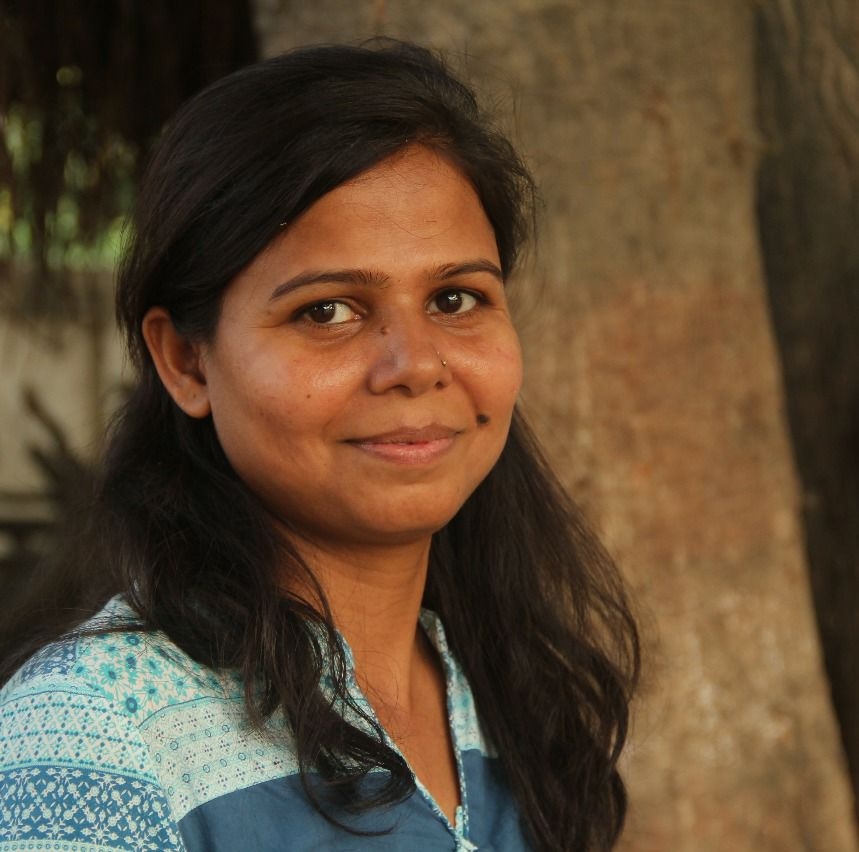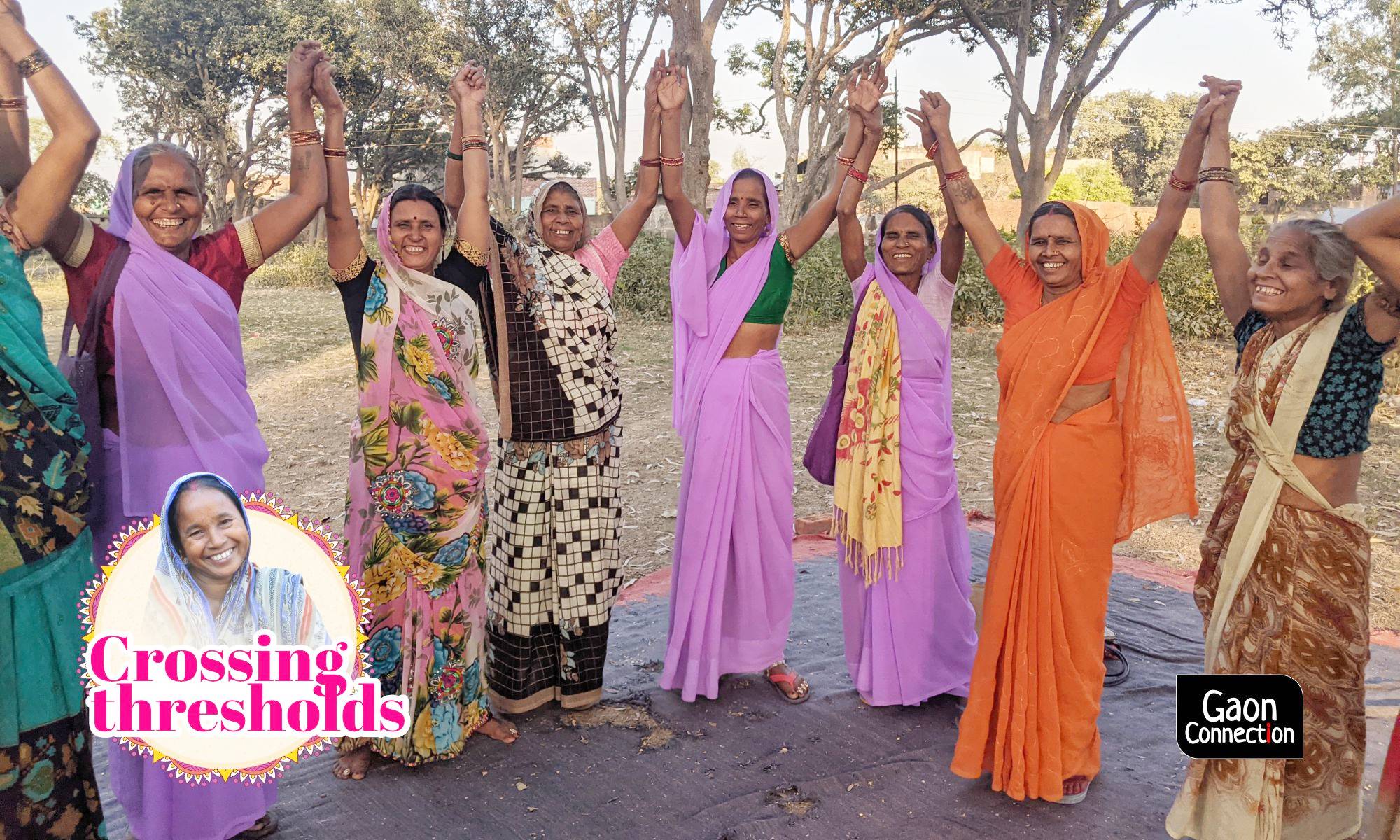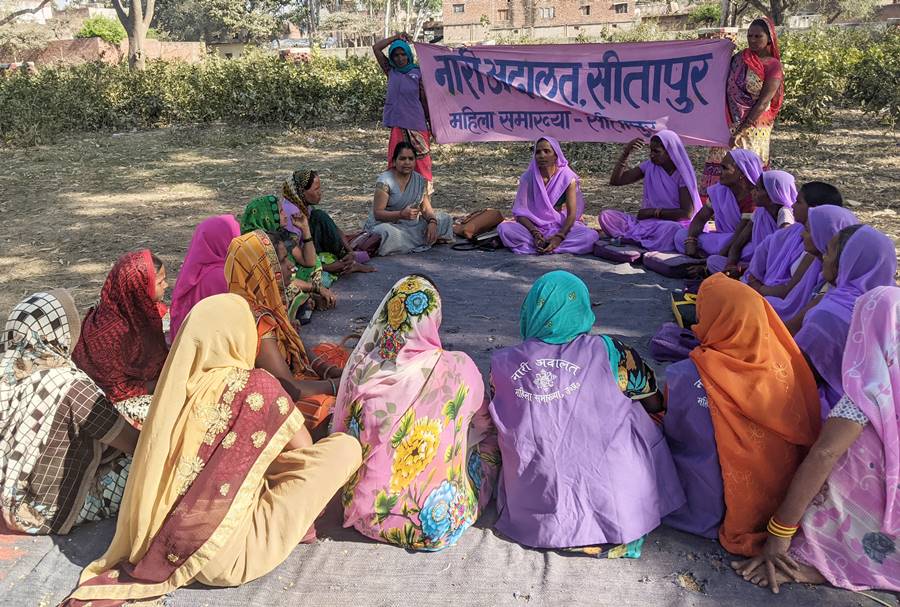‘Women’s courts’ in UP villages address gender violence
The contribution of women in the rural landscape is hardly ever talked about or gets recognised. On International Women’s Day, Gaon Connection reports stories that showcase women empowerment from India’s villages. In the first part of the series, read about the story of ‘women’s court’ in the villages of Uttar Pradesh.


This set up consists of women who are not formally educated but have a sound knowledge about the justice delivery system. (Photo: Neetu Singh)
Sitapur, Uttar Pradesh
Multiple cases of violence against women in the rural areas made way to the headlines in India in the last two months. To address the atrocities on women in a predominantly patriarchal society, ‘Women’s courts’ have sprung up which are a female-centric set up that seek to counsel and assist women in dispute resolution and getting their grievances addressed by the government machinery.
The system has proved to be a ray of hope for the victims of crimes like rape, harassment, dowry-related violence, property disputes, sexual abuse and similar gender-based crimes against women.
Gaon Connection witnessed such a case of alleged harassment in Uttar Pradesh’s Sitapur district.

Carrying her five-month-old infant in her arms, Arti (30) walked five kilometres to seek the assistance of the women’s court on a hot summer afternoon. “My husband’s brothers want to grab my land and torture me so that I give up my rights on the property. I had written an application to the officials on the third of March but to no avail,” said Arti sobbing.
Arti, who belongs to a Dalit community, lives in a village which is 40 kms away from the Sitapur district headquarters. She approached the women’s court with a hope that her woes will be heard and resolved. The women, who work as counselors in the women’s courts, listened patiently to the woman and asked her to stop sobbing and assured her that she has come to the right place and added that justice will soon be delivered to her.
There is no judge in these ‘courts’. This set up counsels women to raise their issues efficiently with the authorities, consists of women who are not formally educated but have a sound knowledge about the justice delivery system and the provisions of the India Penal Code (IPC). Their second biggest skill is their counseling ability and determination to raise the issue effectively before the concerned office.
To get the women’s cases and issues resolved quickly and efficiently, even the police authorities sometimes seek the help of these women. The volunteers in women’s courts have been trained and educated by volunteers of ‘Mahila Samakhya’ — a programme run by the Ministry of Women & Child Development. But at present, the scheme doesn’t operate officially.
“Naari Adaalat (women’s courts) is a volunteer organisation. Due to lack of allocation of funds by the government, we had to cease our operations. But the programme is still being run by women without any support from the government,” Smriti Singh, former planning director of Mahila Samakhya, Uttar Pradesh, told Gaon Connection.
As per Singh, there are 150 such courts in the state. “It is hard to tell if these courts are operating unhindered as there has not been a follow-up for the past one year. But I believe that these courts must be functional because I am aware of the enthusiasm of these women,” she added.
According to the National Crime Records Bureau (NCRB) figures for 2019, India registers 87 rape cases every day. 32,033 cases of rape were registered in 2019 out of which 3,065 were in Uttar Pradesh alone which is roughly 10 per cent of the total caseload.
The Mahila Samakhya programme was started by the Central government in 11 states in 1989. In 2015, the Centre wrote a letter to the states notifying that the scheme has been wound up from its end and it is up to the states if they wish to continue it on their own.
In Uttar Pradesh, this program was wound up in 2020 due to insufficient funds but such is the spirit of these women that they continue to operate on their own.

